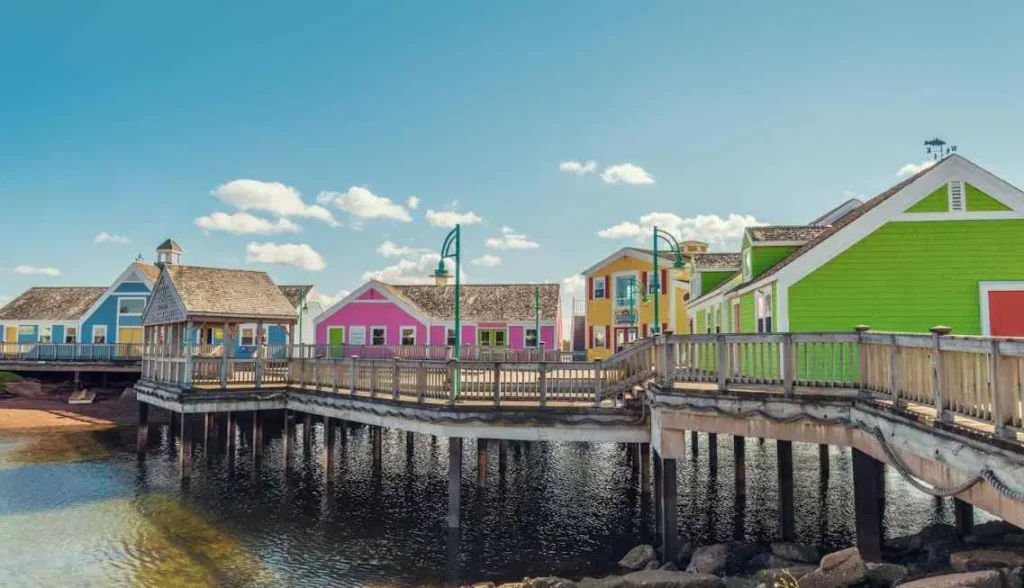Part II: A Framework for Economy, Population and Immigration in PEI

In Part I, we constructed a mental model of a rudimentary free-market economy to show that once the costs of transportation reach a low enough threshold, population levels largely become irrelevant in determining the standard of living.
We can’t simply rely on just our models though; we must look at the economy today in order to understand why the current political class is fanatical about population growth.
The Business Need for Immigration
The Province’s population report lists the declining replacement rate as a key factor for encouraging immigration. In order to maintain a stable population, the replacement rate should be near 2.1. Right now, the replacement rate is 1.39 for PEI, meaning that without immigration the population would begin to drop significantly.
In a free-market economy, this would not be so much of an issue. Entrepreneurs would anticipate how this demographic change would affect demand and begin the process of shifting capital into new lines of production to better serve consumers.
In economics, this is called capital reallocation. An example of this concept might be converting elementary schools into nursing homes or restructuring education programs to better serve an aging population.
There would be a brief period of adjustment, but as always, the market would eventually return to a state of equilibrium with a lower population.
The crux of the issue today is that the political class, along with certain voting blocs, is not willing to allow the market to make the necessary adjustments in response to a declining population. Their interests are better served by cheaper labor and inflation; and thus, we now understand the need for immigrants.
Business columnist Blake Doyle makes this clear in his column highlighting the “reduced growth potential” of a declining population. Blake is correct that increased immigration would lead to lower wages and help spur growth for businesses. However, the well being of society depends on more than just growth for certain sectors, affordability and access to services are also key areas that deserve attention. It’s a myopic view that considers just growth to the detriment of other areas.
While I understand that running a business is hard, it’s quite frankly not the job of government to guarantee business profits.
Blake also shows concern for housing developers and how property prices have “begun to stagnate.” I should think that is a good thing. Considering the level of food insecurity on the Island, lower home prices mean families have more money left over for other necessities. This eases the pressures on affordability which is by far the biggest issue facing the middle class.
The Unholy Alliance
Let me say that I respect Blake and enjoy reading his column; I just happen to disagree with his conclusions on the topic of immigration. He wrote this immigration article from the prospective of a business lobbyist instead of a statesman.
Since there is no lobby for the common man on PEI and the opposition parties are too busy trying to keep unions happy, allow me to lobby for the common man – which at this point is carrying society on his back. What we have in regards to immigration policy is an unholy alliance between business and politicians. Blake himself is appealing to the government’s own self-interest by highlighting the “absolute necessity” of population growth when debt is being accumulated at an “unsustainable rate.” He is correct, the budget has been exploded to such a ridiculous level that the government is forced to import immigrants which can be taxed in order to support their spending.
Immigrants also help lower labor costs and drive inflation in housing which is why Blake appears interested in immigration policy.
Unfortunately, this policy is also making life more unaffordable in regards to housing. What is happening today in regards to the youth is obscene, they are being sacrificed on the altar of greater profits for businesses and increased security for older generations.
The youth and middle class might not be able to adequately discern the forces that are working against them, but they do sense that the game is rigged against them.
In order to bring a greater sense of justice back to society, I suggest pursuing a policy that allows for a slight population decrease from year to year. This would ease pressure on housing by lowering demand and allow supply to catch up, the natural consequence would be a downward pressure in price which would be most welcomed by large segments of society.
I understand this would impact the bottom line of developers, but asking the government to burst open the doors to immigration in order to protect the profits of developers is beyond the pale. Such policy decisions must cease if people are to trust those in power once again.
Lowering spending is also an absolute must if this policy is to succeed. The issue that I see is there are few people in positions of power that are willing to advocate for free-markets.